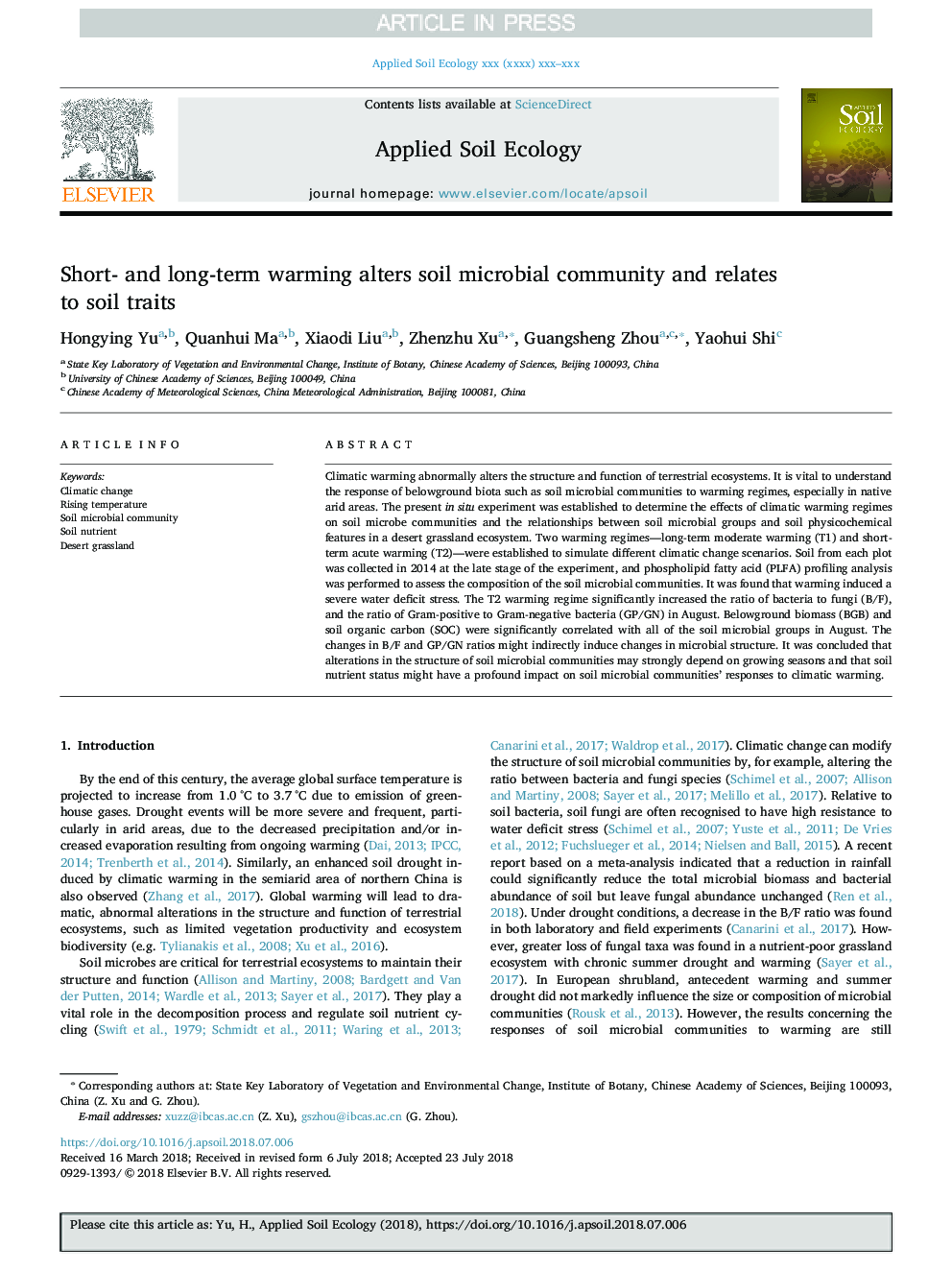| Article ID | Journal | Published Year | Pages | File Type |
|---|---|---|---|---|
| 10223320 | Applied Soil Ecology | 2018 | 7 Pages |
Abstract
Climatic warming abnormally alters the structure and function of terrestrial ecosystems. It is vital to understand the response of belowground biota such as soil microbial communities to warming regimes, especially in native arid areas. The present in situ experiment was established to determine the effects of climatic warming regimes on soil microbe communities and the relationships between soil microbial groups and soil physicochemical features in a desert grassland ecosystem. Two warming regimes-long-term moderate warming (T1) and short-term acute warming (T2)-were established to simulate different climatic change scenarios. Soil from each plot was collected in 2014 at the late stage of the experiment, and phospholipid fatty acid (PLFA) profiling analysis was performed to assess the composition of the soil microbial communities. It was found that warming induced a severe water deficit stress. The T2 warming regime significantly increased the ratio of bacteria to fungi (B/F), and the ratio of Gram-positive to Gram-negative bacteria (GP/GN) in August. Belowground biomass (BGB) and soil organic carbon (SOC) were significantly correlated with all of the soil microbial groups in August. The changes in B/F and GP/GN ratios might indirectly induce changes in microbial structure. It was concluded that alterations in the structure of soil microbial communities may strongly depend on growing seasons and that soil nutrient status might have a profound impact on soil microbial communities' responses to climatic warming.
Related Topics
Life Sciences
Agricultural and Biological Sciences
Ecology, Evolution, Behavior and Systematics
Authors
Hongying Yu, Quanhui Ma, Xiaodi Liu, Zhenzhu Xu, Guangsheng Zhou, Yaohui Shi,
